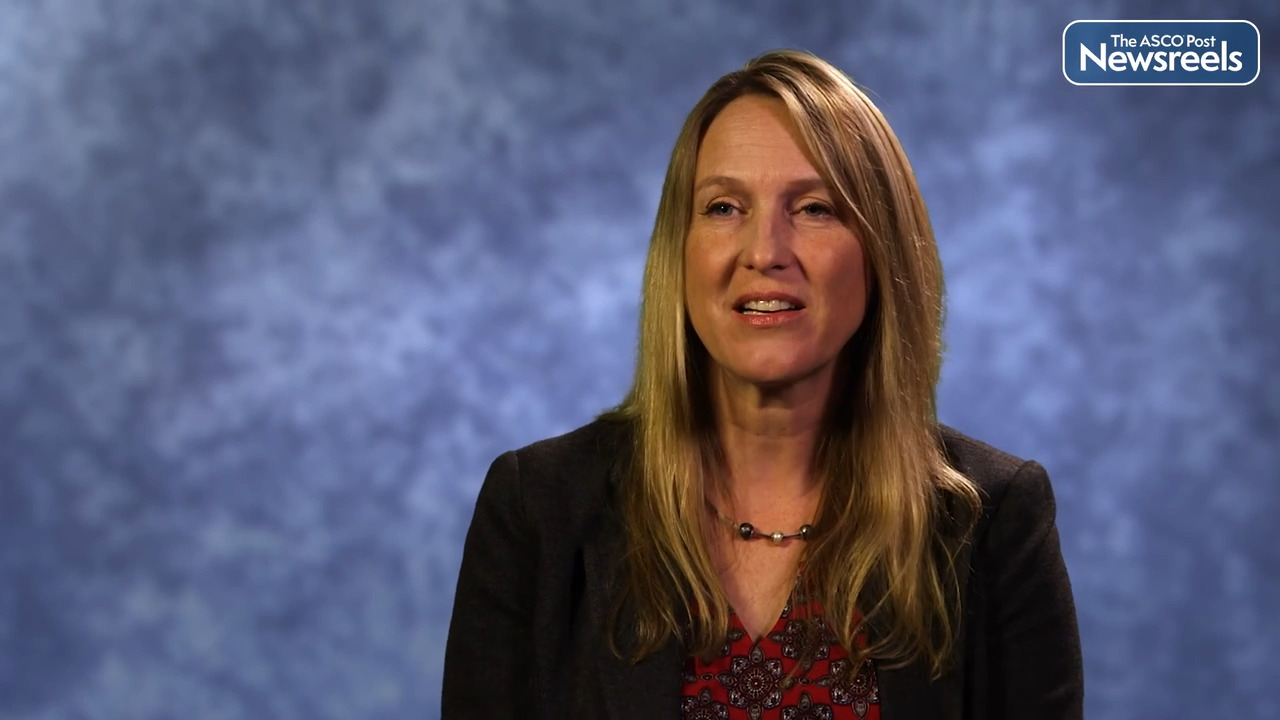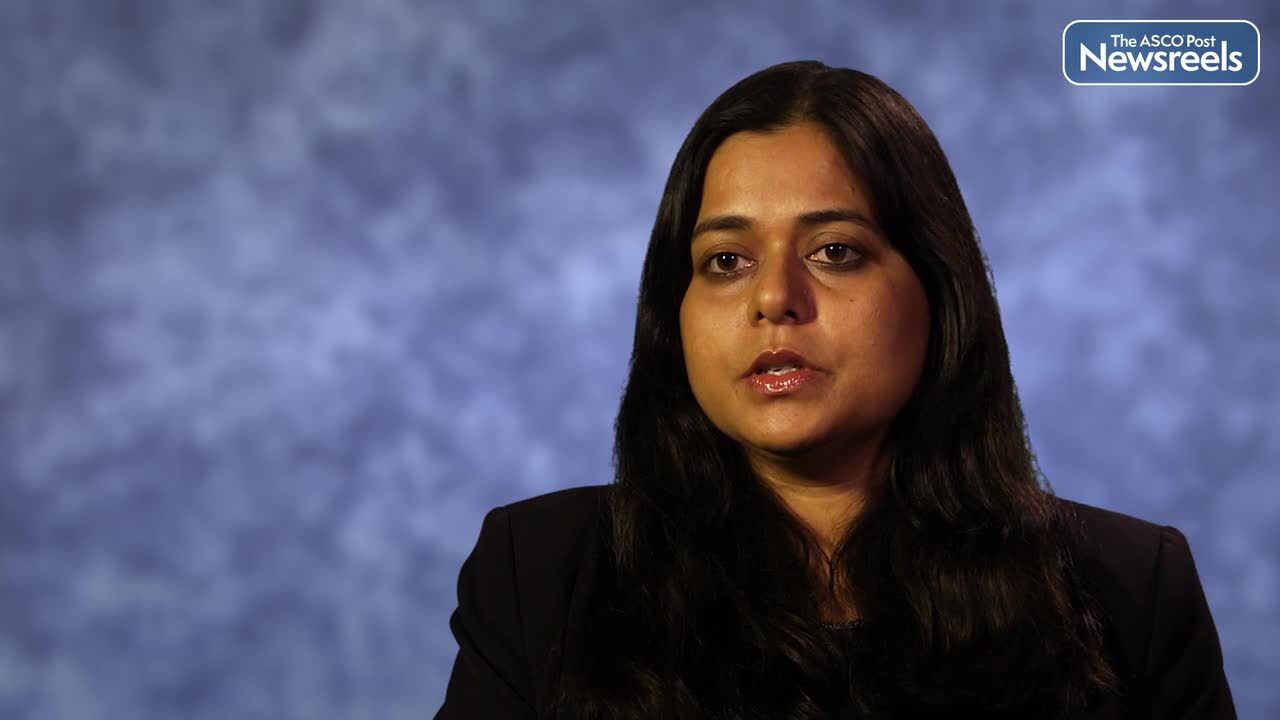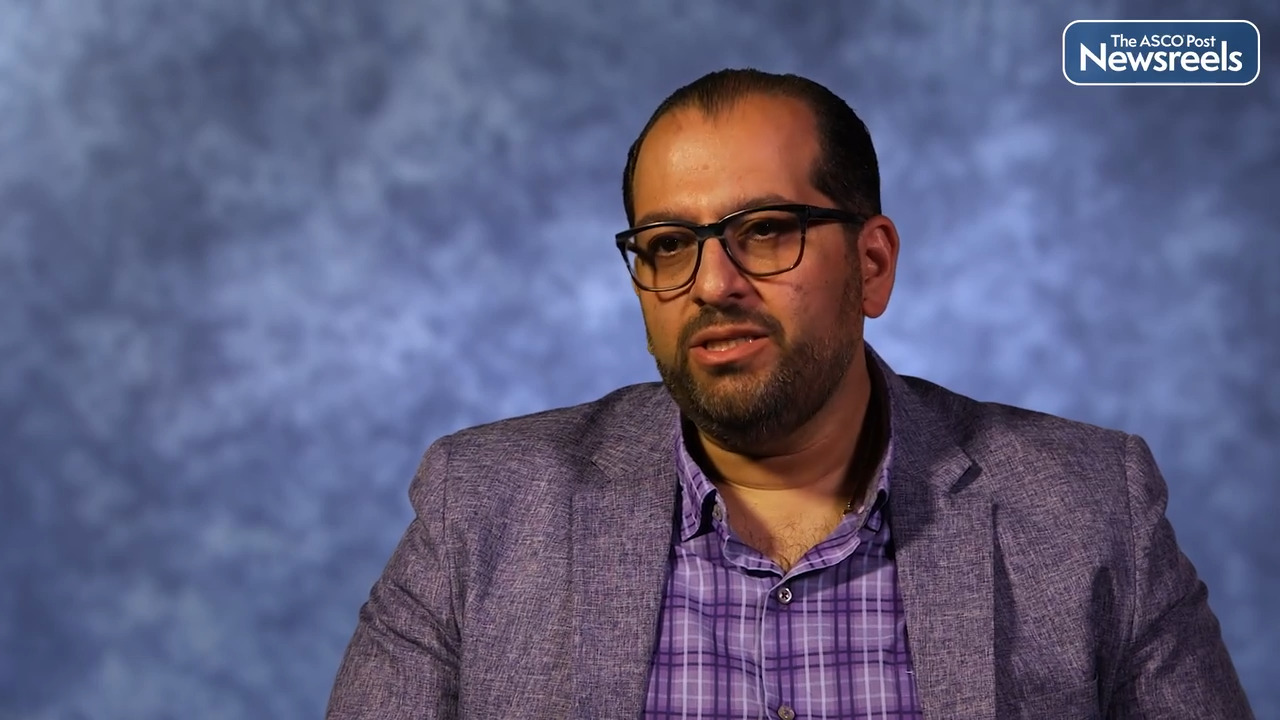Klaus Pantel, MD, on Liquid Biopsy Research: Opportunities and Challenges
AACR Annual Meeting 2022
Klaus Pantel, MD, of the University Medical Center Hamburg-Eppendorf, discusses liquid biopsy technologies and biomarkers, with a focus on circulating tumor cells and circulating tumor DNA; clinical applications such as early detection of cancer, improved staging, and surveillance of measurable residual disease; and how best to detect and monitor response to systemic therapies, as well as ways to identify therapeutic targets and resistance mechanisms (Abstract SY08).
The ASCO Post Staff
Alana L. Welm, PhD, of the University of Utah Huntsman Cancer Institute, discusses her findings of a new pathway that regulates the antitumor immune response during metastatic outgrowth. Interfering with a particular isoform of RON kinase may cause metastatic tumors to be swarmed by T cells and killed, suggesting that new approaches to targeting this kinase may be achievable in the near future (Abstract SY32).
The ASCO Post Staff
Benoit You, MD, PhD, of the Lyon University Hospital (France), discusses phase I/II safety and efficacy results from the ENDOLA trial that combined olaparib with metronomic cyclophosphamide and metformin in patients with advanced pretreated endometrial cancer. At 10 weeks, the non–disease progression rate was 61.5%, reaching the primary endpoint of the study. Median progression-free survival was 5.1 months. Research on biomarkers of efficacy is ongoing (Abstract CT005).
The ASCO Post Staff
Meenakshi Anurag, PhD, of Baylor College of Medicine, discusses results from the ALTERNATE trial, which showed the combination of anastrozole plus fulvestrant was superior to either drug alone in inhibiting tumor proliferation in postmenopausal women with early-stage luminal B breast cancer (Abstract CT026).
The ASCO Post Staff
Matthew L. Meyerson, MD, PhD, of the Dana-Farber Cancer Institute, discusses study findings that suggest the variation in frequency of EGFR and KRAS mutations in lung cancer may be associated with genetic ancestry in patients from Latin America. The results indicate it may be possible to identify germline alleles underpinning this link. Finding a germline locus or loci may impact the development of lung cancers with these mutations and may improve lung cancer prevention and screening for populations of Latin American origin, as well as others.
The ASCO Post Staff
Josh Neman, PhD, of the Keck School of Medicine, University of Southern California, discusses the distribution of brain metastasis to preferential brain regions that vary according to cancer subtype, how neurotransmitters respond, and the ways in which the central nervous system acclimates (Abstract SY32).





